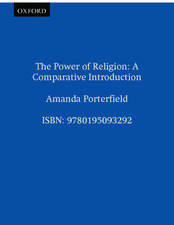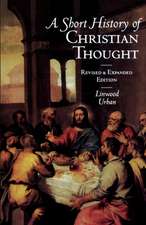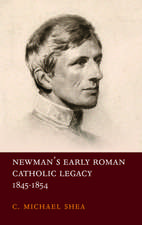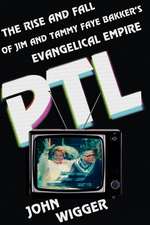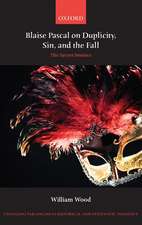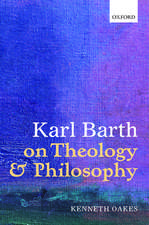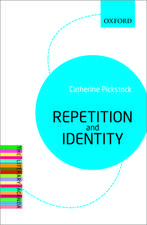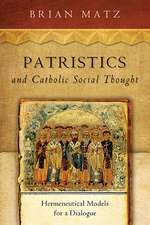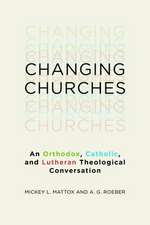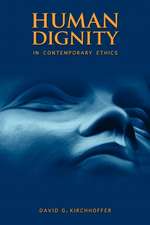The Oxford Handbook of Early Modern Theology, 1600-1800: Oxford Handbooks
Editat de Ulrich L. Lehner, Richard A. Muller, A. G. Roeberen Limba Engleză Paperback – 15 ian 2020
| Toate formatele și edițiile | Preț | Express |
|---|---|---|
| Paperback (1) | 306.15 lei 31-38 zile | |
| Oxford University Press – 15 ian 2020 | 306.15 lei 31-38 zile | |
| Hardback (1) | 934.29 lei 31-38 zile | |
| Oxford University Press – 24 noi 2016 | 934.29 lei 31-38 zile |
Din seria Oxford Handbooks
-
 Preț: 236.89 lei
Preț: 236.89 lei - 23%
 Preț: 855.11 lei
Preț: 855.11 lei - 29%
 Preț: 859.35 lei
Preț: 859.35 lei - 12%
 Preț: 308.25 lei
Preț: 308.25 lei - 23%
 Preț: 1052.07 lei
Preț: 1052.07 lei - 33%
 Preț: 725.45 lei
Preț: 725.45 lei - 15%
 Preț: 273.41 lei
Preț: 273.41 lei - 29%
 Preț: 1083.61 lei
Preț: 1083.61 lei - 14%
 Preț: 278.15 lei
Preț: 278.15 lei - 13%
 Preț: 304.72 lei
Preț: 304.72 lei - 15%
 Preț: 314.19 lei
Preț: 314.19 lei - 29%
 Preț: 931.18 lei
Preț: 931.18 lei - 25%
 Preț: 829.05 lei
Preț: 829.05 lei - 17%
 Preț: 912.51 lei
Preț: 912.51 lei - 24%
 Preț: 1071.82 lei
Preț: 1071.82 lei - 11%
 Preț: 258.04 lei
Preț: 258.04 lei - 26%
 Preț: 1376.97 lei
Preț: 1376.97 lei - 15%
 Preț: 357.85 lei
Preț: 357.85 lei - 30%
 Preț: 842.04 lei
Preț: 842.04 lei -
 Preț: 303.54 lei
Preț: 303.54 lei -
 Preț: 487.85 lei
Preț: 487.85 lei - 17%
 Preț: 260.81 lei
Preț: 260.81 lei - 21%
 Preț: 359.87 lei
Preț: 359.87 lei - 12%
 Preț: 267.23 lei
Preț: 267.23 lei - 33%
 Preț: 815.51 lei
Preț: 815.51 lei - 13%
 Preț: 346.76 lei
Preț: 346.76 lei - 30%
 Preț: 1065.79 lei
Preț: 1065.79 lei - 29%
 Preț: 930.94 lei
Preț: 930.94 lei -
 Preț: 263.45 lei
Preț: 263.45 lei - 22%
 Preț: 1095.69 lei
Preț: 1095.69 lei - 14%
 Preț: 987.01 lei
Preț: 987.01 lei - 21%
 Preț: 863.03 lei
Preț: 863.03 lei - 15%
 Preț: 358.80 lei
Preț: 358.80 lei - 16%
 Preț: 264.39 lei
Preț: 264.39 lei - 23%
 Preț: 839.90 lei
Preț: 839.90 lei - 34%
 Preț: 929.22 lei
Preț: 929.22 lei - 29%
 Preț: 855.42 lei
Preț: 855.42 lei - 33%
 Preț: 737.68 lei
Preț: 737.68 lei - 16%
 Preț: 263.35 lei
Preț: 263.35 lei - 29%
 Preț: 942.77 lei
Preț: 942.77 lei - 26%
 Preț: 343.85 lei
Preț: 343.85 lei - 26%
 Preț: 342.76 lei
Preț: 342.76 lei - 13%
 Preț: 264.87 lei
Preț: 264.87 lei - 30%
 Preț: 818.12 lei
Preț: 818.12 lei - 30%
 Preț: 815.25 lei
Preț: 815.25 lei - 25%
 Preț: 366.95 lei
Preț: 366.95 lei - 21%
 Preț: 861.04 lei
Preț: 861.04 lei - 12%
 Preț: 250.34 lei
Preț: 250.34 lei
Preț: 306.15 lei
Preț vechi: 338.59 lei
-10% Nou
Puncte Express: 459
Preț estimativ în valută:
58.59€ • 61.09$ • 48.69£
58.59€ • 61.09$ • 48.69£
Carte tipărită la comandă
Livrare economică 10-17 martie
Preluare comenzi: 021 569.72.76
Specificații
ISBN-13: 9780190082864
ISBN-10: 0190082860
Pagini: 688
Dimensiuni: 168 x 241 x 33 mm
Greutate: 1.07 kg
Editura: Oxford University Press
Colecția OUP USA
Seria Oxford Handbooks
Locul publicării:New York, United States
ISBN-10: 0190082860
Pagini: 688
Dimensiuni: 168 x 241 x 33 mm
Greutate: 1.07 kg
Editura: Oxford University Press
Colecția OUP USA
Seria Oxford Handbooks
Locul publicării:New York, United States
Recenzii
Not only will scholars and researchers of the early modern period benefit from the richly documented summaries offered here but the Handbook will also provide graduate students and others curious about this era with an excellent view of the concerns and contours of the current state of research.
This is a 'must have' for anyone working in the field.
[T]his Oxford Handbook will be a valuable reference tool for any scholar interested in Christianity in the early modern world [T]he handbook is the first attempt to survey this critical period and should be saluted as such.
This volume is useful primarily for the breadth of material it covers. It provides substantial overview of Roman Catholic, Lutheran, Reformed, and dissenting traditions. The essays are clear and introductory enough to be useful for beginning students while remaining helpful reference sources for established scholars.
[T]he editors have produced an impressive volume both in scope and in size, assembled an impressive roster of authors, and allowed considerable freedom to each.
The Oxford Handbook of Early Modern Theology is an impressively wide-ranging and detailed volume that packs a huge amount into less than seven hundred pages. As a result, it will almost certainly be a key point of reference for scholars and students of both theology and early modern history for quite some time.
'Current', 'perceptive,' 'comprehensive,' 'definitive,' 'essential,' 'unique' and 'provocative' are all descriptors legitimately applied to this outstanding resource...This handbook deserves a spot on the library reserved reference shelves of all theological schools and universities. Undergraduate schools that take religious studies and theology at all seriously should find a spot for it there as well. Any teacher in Western humanities working in this period would benefit greatly from consulting it often and is encouraged to acquire a personal copy, as are theological graduate students. The book is absorbing and fascinating as well as reliable and superbly done. Just watch how frequently it will be cited in coming years."-James A. DeJong, Calvin Theological Journal
While this work touches cross confessional traditions, students of Reformed Orthodoxy in particular cannot afford to be without this book. It is a scholarly benchmark that provides us with most of the tools that we need to engage in serious study. Its chapters contain an almost complete library of relevant issues to early modern theology across confessional lines. This book will greatly help students, pastors, and scholars as they continue to plumb the depths of our catholic Christian heritage. This is likely the single most important resource available to date to help us do so."-Ryan McGraw, Meet the Puritans Blog
This excellent volume provides a comprehensive introduction to Christian theological literature in western Europe through two important and yeasty centuries . this is a splendid collaborative effort that introduces wide and complex perspectives that will make this a standard guide and reference work for years to come.
More than 40 specialists from both sides of the Atlantic have distilled an enormous amount of detail in brief essays...Recommended.
No doubt, this volume is an excellent handbook for theologians and students who want to understand the early modern period, especially those looking for an understanding of the neglected theological movements and authors. Anyone wanting to understand the modern theology and contemporary issues, not only in Western Europe but also in other parts of the world, cannot ignore The Oxford Handbook of Early Modern Theology which concisely offers a huge amount of resources in less than seven hundred pages.
This is a 'must have' for anyone working in the field.
[T]his Oxford Handbook will be a valuable reference tool for any scholar interested in Christianity in the early modern world [T]he handbook is the first attempt to survey this critical period and should be saluted as such.
This volume is useful primarily for the breadth of material it covers. It provides substantial overview of Roman Catholic, Lutheran, Reformed, and dissenting traditions. The essays are clear and introductory enough to be useful for beginning students while remaining helpful reference sources for established scholars.
[T]he editors have produced an impressive volume both in scope and in size, assembled an impressive roster of authors, and allowed considerable freedom to each.
The Oxford Handbook of Early Modern Theology is an impressively wide-ranging and detailed volume that packs a huge amount into less than seven hundred pages. As a result, it will almost certainly be a key point of reference for scholars and students of both theology and early modern history for quite some time.
'Current', 'perceptive,' 'comprehensive,' 'definitive,' 'essential,' 'unique' and 'provocative' are all descriptors legitimately applied to this outstanding resource...This handbook deserves a spot on the library reserved reference shelves of all theological schools and universities. Undergraduate schools that take religious studies and theology at all seriously should find a spot for it there as well. Any teacher in Western humanities working in this period would benefit greatly from consulting it often and is encouraged to acquire a personal copy, as are theological graduate students. The book is absorbing and fascinating as well as reliable and superbly done. Just watch how frequently it will be cited in coming years."-James A. DeJong, Calvin Theological Journal
While this work touches cross confessional traditions, students of Reformed Orthodoxy in particular cannot afford to be without this book. It is a scholarly benchmark that provides us with most of the tools that we need to engage in serious study. Its chapters contain an almost complete library of relevant issues to early modern theology across confessional lines. This book will greatly help students, pastors, and scholars as they continue to plumb the depths of our catholic Christian heritage. This is likely the single most important resource available to date to help us do so."-Ryan McGraw, Meet the Puritans Blog
This excellent volume provides a comprehensive introduction to Christian theological literature in western Europe through two important and yeasty centuries . this is a splendid collaborative effort that introduces wide and complex perspectives that will make this a standard guide and reference work for years to come.
More than 40 specialists from both sides of the Atlantic have distilled an enormous amount of detail in brief essays...Recommended.
No doubt, this volume is an excellent handbook for theologians and students who want to understand the early modern period, especially those looking for an understanding of the neglected theological movements and authors. Anyone wanting to understand the modern theology and contemporary issues, not only in Western Europe but also in other parts of the world, cannot ignore The Oxford Handbook of Early Modern Theology which concisely offers a huge amount of resources in less than seven hundred pages.
Notă biografică
Ulrich L. Lehner is William K. Warren Professor of Theology at the University of Notre Dame, IN.Richard A. Muller is Senior Fellow at Junius Institute for Digital Reformation Research and P. J. Zondervan Professor of Historical Theology at Calvin Theological Seminary.A.G. Roeber is Professor Emeritus of Early Modern History and Religious Studies at Pennsylvania State University and Professor of Church History at St. Vladimir's Orthodox Theological Seminary.


